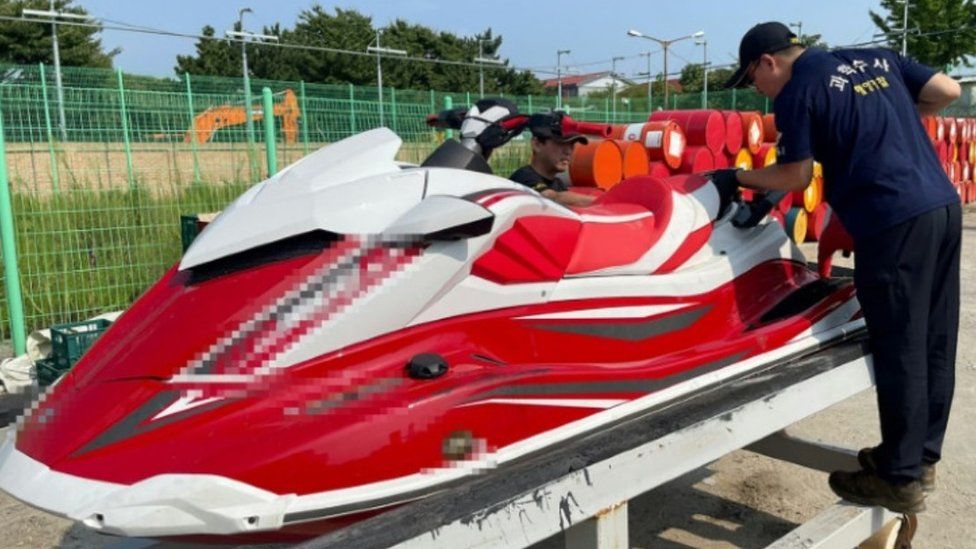ARTICLE AD BOX
 Image source, South Korea Coast Guard/AFP
Image source, South Korea Coast Guard/AFP
The man believed to be Kwon Pyong is said to have got into trouble on his jet ski as he neared the city of Incheon
By Celia Hatton, Asia-Pacific editor, & Harrison Jones
BBC News
A man believed to be a Chinese rights activist has been arrested in South Korea after an apparent attempt to flee there on a jet ski.
The country's Coast Guard said the man had travelled about 300km (186 miles) across the Yellow Sea using binoculars and a compass, but then got stuck.
Local reports named him as Kwon Pyong, a critic of President Xi Jinping, but his identity has not been verified.
The Chinese embassy in Seoul declined to comment.
In recent years, Beijing has increased its use of exit bans at airports and other legal border crossings in order to block activists from leaving Chinese territory.
But this is perhaps one of the more extreme escape attempts and one which dissidents may point to as an example of the lengths they have to go to to leave the country.
The Coast Guard said the man, wearing a life jacket and helmet, was towing five barrels of fuel from Shandong province behind the 1800cc machine.
"He refilled the petrol on the ride and dumped the empty barrels into the sea," it explained, adding that he got into trouble near a cruise terminal off the western port of Incheon and called for help.
The Coast Guard did not identify the man, but said he was detained last Wednesday for attempting "to smuggle himself into" the city. There is no suspicion that he could be a spy.South Korea-based campaigner Lee Dae-seon, from NGO Dialogue China, told the AFP news agency on Tuesday that Mr Kwon, 35, was the escapee.
The activist has spent time in prison in China for publicly criticising President Xi.
It is highly likely that he would have experienced problems trying to leave the country by regular means in order to claim asylum.
Mr Lee said: "While [Mr Kwon's] means of entry into South Korea in violation of the law was wrong, surveillance of the Chinese authorities and political persecution of Kwon since 2016 are behind his life-risking crossing into South Korea."
He added that Mr Kwon was now considering whether to apply for refugee status in South Korea - which only grants a handful of requests each year - or a third country.

 1 year ago
17
1 year ago
17








 English (US)
English (US)